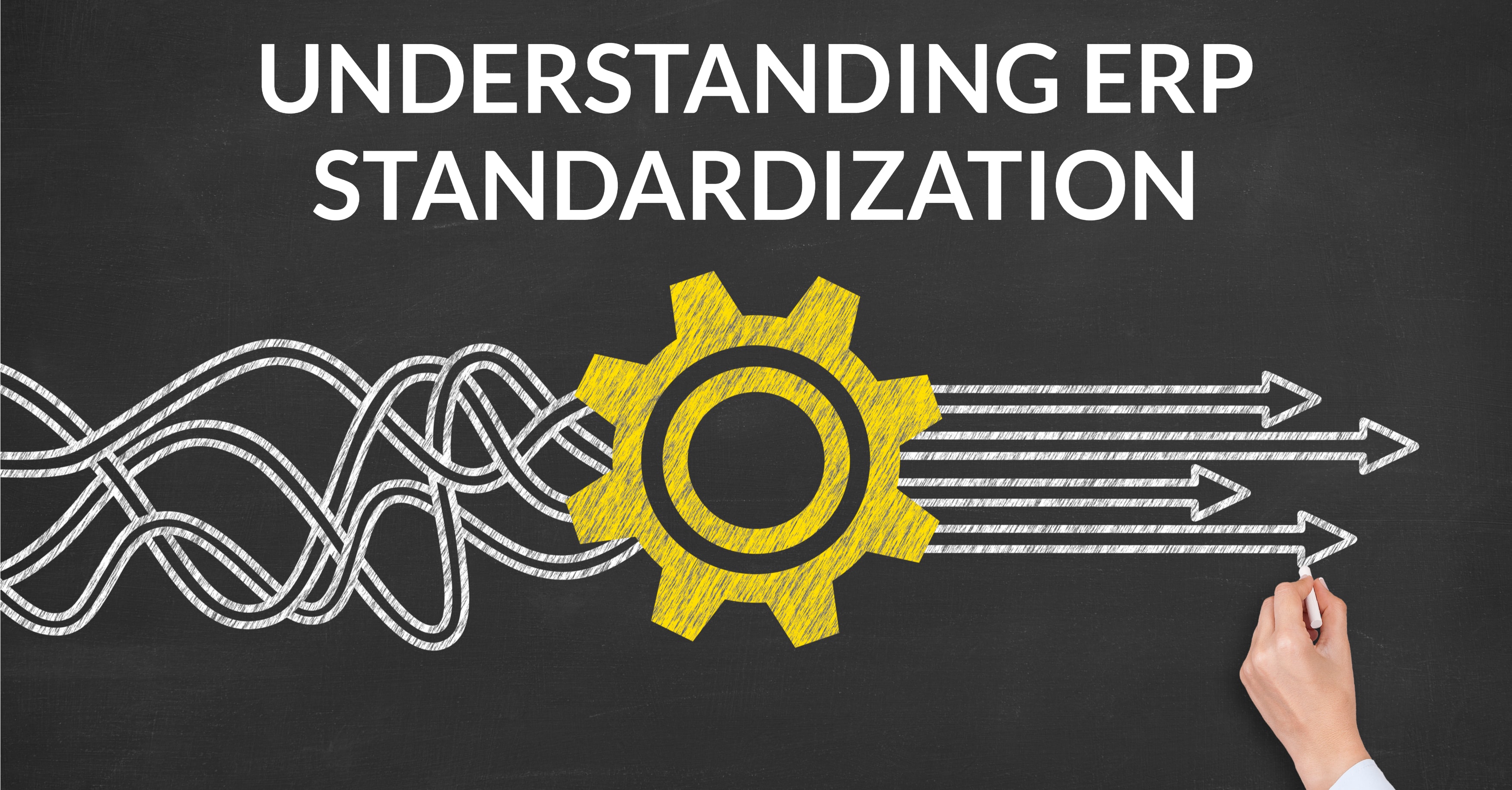Guide to Understanding ERP Standardization
Many manufacturers turn to enterprise resource planning (ERP) software to standardize their processes—and other manufacturers avoid the software for that very reason. Every business is different, so the idea of molding operations to comply with a new software system isn’t all that appealing. Manufacturers who dismiss the idea of ERP standardization will often go without the software altogether or fully customize their solution to align with their current practices.
But these businesses might not have taken the right path. The point of ERP standardization is to implement best practices, consistency and automation into manufacturing processes, not to force companies into adopting unfamiliar procedures. Furthermore, ERP standardization can be achieved on a tailored solution that provides flexibility. To give you a more accurate picture of ERP standardization, we’re correcting some common misconceptions.
Misconceptions of ERP Standardization
Manufacturers often view ERP as a cookie-cutter solution that forces businesses to modify their processes to fit their software. For many companies, this doesn’t sound good. They want to improve operations, not completely uproot them to align with their ERP. Furthermore, standardization is viewed as adding rigidity to manufacturing processes. Therefore, when businesses grow and demands change, their ERP won’t give them the flexibility to modify activities and meet customer needs.
To counter the perceived problems of standardization, manufacturers will often undergo extensive customizations. Software customization can help them fully tailor their solution to their specifications, so they can continue running operations as usual. As the business expands, just customize features to accommodate new requirements. Many manufacturers view this method as the most effective strategy for gaining the benefits of automation and visibility from their ERP system without changing their workflows.
The Reality of ERP Standardization
ERP standardization isn’t the enemy that some manufacturers perceive it to be. In fact, ERP standardization can be your most trusted ally in boosting your business performance. The software helps you follow manufacturing best practices and streamline operations. Standardized workflows enable automation, so you can reduce manual labor and reduce human errors. They also simplify processes, making your activities more consistent to increase efficiency, lower costs and limit unnecessary variability.
However, standardization can go too far. Your business must still have the flexibility to accommodate customer demands and expansion. Customization might be necessary to modify reports or databases. But some software vendors include features to make it easier to align your software with your business. Platforms that facilitate configurations enable you to make system changes with clicks rather than code, so you can modify your settings without risk or hassle.
Relying on standardization and configuration over customization can dramatically reduce ERP project costs and labor while improving business processes. Custom software solutions require constant upkeep as well as complex and expensive coding. IT teams often lack the manpower or ERP expertise to pull off this much work. Additionally, customization comes with risks. Messing with your program could screw up your data. It also adds complexity to software upgrades.
Finding Middle Ground
Every business is different, but that doesn’t make ERP standardization an obstacle to achieving your unique goals. However, it does mean that every business will have a different approach to ERP standardization and customization. Determining how to implement your software in line with your company’s needs will require a thorough analysis of business processes.
This can be achieved through business process modeling, an activity in which you diagram current as well as desired workflows. Documenting processes will help you detect issues and determine how to optimize workflows to align with your new software, reduce inefficiencies and instill best practices.
As you undergo this activity, seek out input from decision makers across your organization to ensure you cover a wide range of business needs. Which tasks are currently taking too much time? Where are you experiencing gaps in visibility or data silos? What are the reporting requirements for maintaining compliance? As you answer these questions, you’ll start to figure out which processes should remain in place, which workflows need to be streamlined and whether customizations should be pursued.
For most businesses, extensive ERP customization is too taxing and expensive. On the other hand, an out-of-the-box system might not fully support your critical requirements. The key is to find some sort of middle ground, standardizing repetitive processes, configuring features to satisfy specific demands and undergoing customizations only when absolutely necessary. If every step of your implementation is grounded in your organization’s needs and pursuit of continuous improvement, you’re on your way to finding the middle ground.
Wrap Up
When you opt to standardize processes with ERP, you shouldn’t sacrifice flexibility. An ERP implementation will require some changes in your workflows, but it will also give you the agility to grow sustainably and meet unexpected challenges. Epicor, a leading ERP provider for over 45 years, designed its solution to accord with manufacturing best practices while providing flexibility. Epicor ERP supports configurations, simplifies customizations and provides user-friendly tools to ensure your software keeps up with changing business demands.
At Datix, our certified consultants will help you achieve an ERP implementation that supports your business. We’re an Epicor Gold Partner with over 20 years of experience in providing manufacturing and distribution solutions. From business process modeling to customizations, we’ll offer the services you need to execute your software project from start to finish. Our ERP experts will work closely with you to mitigate risk and maximize the value of your investment.
Now that we’ve cleared up the misunderstandings around ERP standardization, it’s time to start considering an implementation. To learn more, reach out to Datix today!
{{cta(‘770c1544-d87d-4acb-9fc4-7a25e1385094′,’justifycenter’)}}


